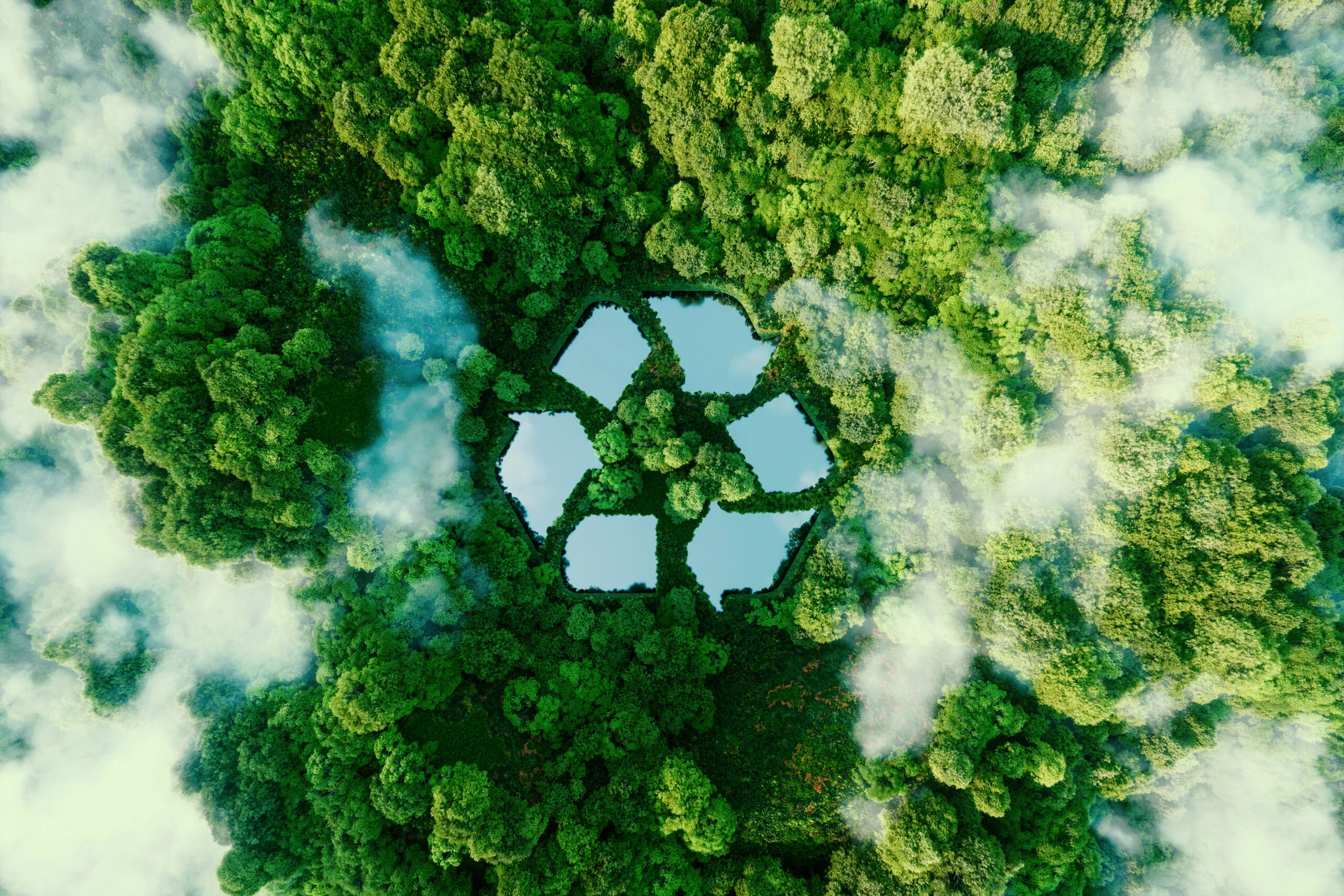Climate change poses an existential threat not only in terms of quality of life but also for utilities to meet demand. A recent article demonstrates that electric demand is increasing, partly due to electrification and decarbonization efforts, which challenge utility providers to meet customer needs without overwhelmingly high bills. While software solutions like Grid-Edge distributed energy resource management systems (DERMS) have enabled utilities the device control needed to run distributed energy resource (DER) programs like demand response or EV managed charging, behavioral energy efficiency programs such as encouraging customers to recycle offer a low-cost mitigation to climate change. In observance of Global Recycling Day, we reflect on why recycling matters, and how even small efforts can yield amazing outcomes.
Rising Climate Concerns
Climate change poses a grave threat to our planet, manifesting in extreme weather patterns, melting polar ice caps, and biodiversity loss which research indicates has already affected 3.6 billion people who already live in areas susceptible to the impact of climate change. At the heart of this crisis lies our unsustainable consumption and disposal habits. The extraction and processing of raw materials for manufacturing release significant greenhouse gasses, heightening global warming. Recycling is a critical tool for mitigating climate change in this dire scenario.
Not only do the increased volatile weather events and temperature extremes directly tied to climate change challenge the continuity of service, but climate change itself is expensive for utilities. According to a report from McKinsey & Company, analysts estimate that climate change could cost upwards of $1.7b per utility by 2050. In fact, climate change cost $92.9 billion in the U.S. in 2023 alone, a figure that promises to rise. As such, climate change must be mitigated and will require multiple tactics, including the resource and energy conservation that recycling provides.
Facts About Recycling
Recycling is a strategic commitment to conserve resources by reusing existing assets. Globally, recycling saves over 700m tons in CO2 emissions, and is projected to 1b tons by 2030; these CO2 emissions are a leading contributor to climate change. The U.S. Environmental Protection Agency notes that as of their most recent research from 2018, the U.S. generated 292.4m tons of solid waste, of which 69m tons were recycled, or roughly 26% of all waste. Further studies indicate that continued commitments to recycling are estimated to reduce emissions by 5.5 to 6.02 gigatons of carbon dioxide, or roughly removing one billion cars from the global fleet annually. As these harmful emissions decrease, utilities will face decreased environmental pressure: recycling helps everyone.
The Environmental Benefits of Recycling
According to the World Bank, global waste is expected to grow by 70% by 2050 unless we all take action. By reusing materials such as paper, plastics, glass, and metals, we conserve natural resources and curtail carbon emissions associated with resource extraction. For instance, recycling aluminum requires substantially less energy than extracting it from bauxite ore, leading to significant reductions in carbon dioxide emissions.
Furthermore, recycling helps divert vast quantities of waste from landfills, mitigating methane emissions—a potent greenhouse gas produced by decomposing organic matter in anaerobic conditions. By minimizing landfill usage through recycling, we can mitigate the environmental impact of waste disposal and combat climate change simultaneously.
The Circular Economy Paradigm
Global Recycling Day underscores the importance of transitioning towards a circular economy—a regenerative system to minimize waste and maximize resource efficiency. In a circular economy, materials are recycled and repurposed, closing the loop of resource consumption and disposal. By embracing this paradigm shift, we can break free from the linear ‘take-make-dispose’ model, reducing our reliance on finite resources and mitigating the environmental footprint of production and consumption.
Empowering Individuals and Communities
Global Recycling Day serves as a rallying cry to individuals, communities, and governments worldwide to prioritize recycling and adopt sustainable practices. Through education, awareness campaigns, and incentivized recycling programs, we can empower citizens to participate in waste reduction efforts actively. By fostering a culture of recycling and responsible consumption, we can collectively drive significant reductions in carbon emissions and combat climate change at grassroots levels.
Policy Imperatives
In addition to individual actions, governments play a pivotal role in shaping recycling infrastructure and policies. Policy measures such as extended producer responsibility, landfill taxes, and incentives for recycling industries can motivate sustainable practices and accelerate the transition toward a circular economy. Global Recycling Day serves as a platform for advocating for policy reforms that prioritize waste reduction, resource conservation, and climate action. As a bonus, advocating for recycling with behavioral messaging through energy efficiency programs requires no regulatory buy-in, allowing utilities to promote recycling and other clean energy initiatives with ease.
Global Recycling Day & Climate Change Conclusion
Global Recycling Day is not merely an annual observance but a clarion call for action—a reminder of the pivotal role recycling plays in combating climate change. By embracing recycling as a cornerstone of sustainable development, we can reduce carbon emissions, conserve precious resources, and build a more resilient planet for future generations. As we mark this day, let us reaffirm our commitment to recycling and collective climate action, recognizing that every recycled material is a step towards a greener, more sustainable future.





